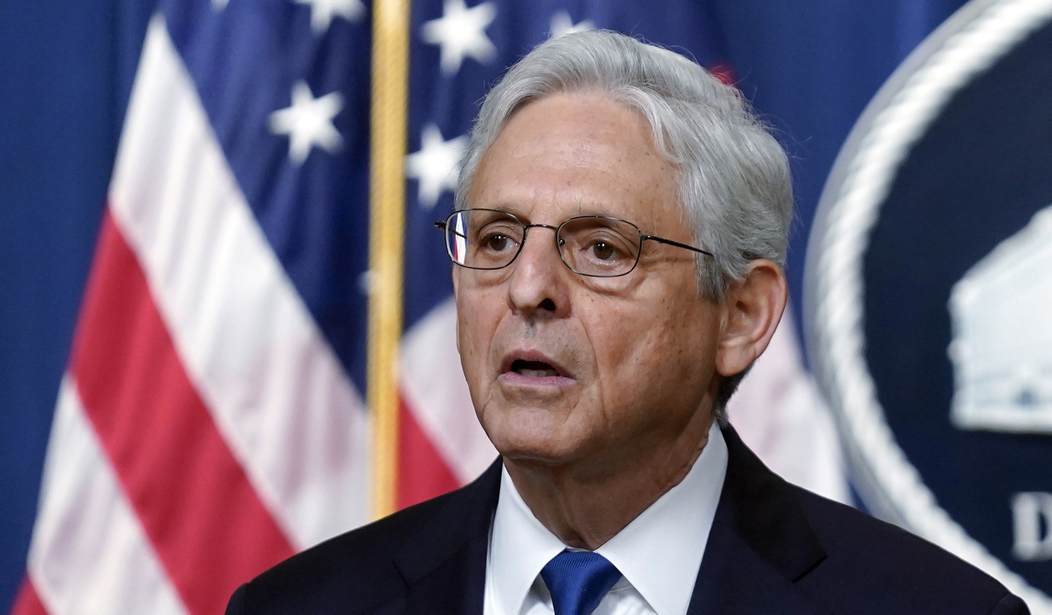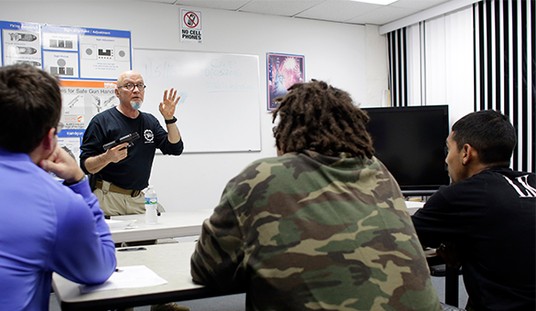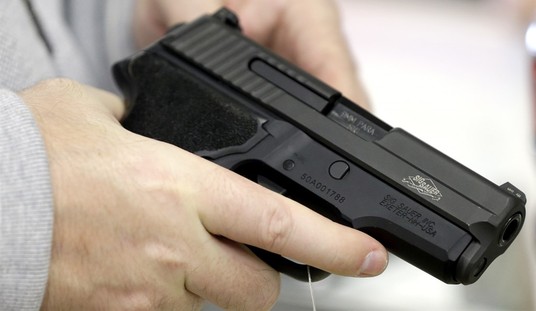It's hard to think of a friendlier environment for the DOJ to go after a gun store owner than Baltimore, Maryland (outside of New York City, Chicago, or San Francisco, anyway), but a jury in Charm City has rejected the Biden administration's attempt to put a gun store owner behind bars for allegedly conspiring with a Maryland sheriff to illegally acquire machine guns. In fact, it only took jurors five hours to deliberate before they came back to the courtroom and acquitted Robert Krop of all charges.
Krop, who owns The Machine Gun Nest in Frederick, Maryland, had been accused, along with Frederick County Sheriff Chuck Jenkins, of lying to the ATF in order to illegally obtain seven machine guns. Krop and Jenkins indicated on the ATF paperwork that the guns would be used in "demonstrations" for the sheriff's department at the gun shop, but the Biden administration contended that no demonstrations had ever taken place and instead, Krop used the machine guns as rentals at his gun store and range.
Krop's attorney never tried to argue that the machine gun sales didn't take place. Instead, he contended that though the ATF allows for transfers of full-auto firearms to FFLs for the purpose of "demonstrations", the agency doesn't define that term.
That alone, defense attorney Luke Cass said during his closing argument, created enough of a reasonable doubt to acquit Krop.
Angelina Thompson, a spokesperson for the U.S. Attorney’s Office for the District of Maryland, wrote in an email on Tuesday that her office had no comment on either Krop’s acquittal or the case against Jenkins.
Jenkins’ trial is scheduled to begin on Jan. 27 and last seven days.
Krop rejected two plea offers from federal prosecutors, allowing his case to proceed to trial.
Will prosecutors decide to move forward with the case against the sheriff now that Krop has been acquitted of all charges? How can the DOJ prove a conspiracy to deceive the ATF when Jenkins' co-defendant has been cleared by a jury of his peers? The DOJ is essentially left to argue that Jenkins engaged in a conspiracy, while the gun store owner he was working with did not run afoul of the law.
Krop's acquittal also provides a roadmap for Jenkins' attorney to follow, should the DOJ decide not to drop its case against the sheriff. Krop wasn't convicted because his attorneys were able to convince a jury that the ATF had screwed up by not defining the term "demonstration". If that argument worked for the gun store owner, it stands to reason that it should be equally as effective when it comes to the sheriff he was working with.
The laws regulating machine guns are screwy enough as is, especially in light of the Supreme Court's decision in Bruen requiring the government to demonstrate that modern regulations have historical analogues from the time the Second Amendment was ratified in 1791, or perhaps when the Fourteenth Amendment was ratified in 1868. The National Firearms Act wasn't created until 1934, and the Hughes Amendment that prohibits the sale of new machine guns to civilians wasn't adopted by Congress until the mid-1980s. Maybe the Court will adopt the position that the NFA was created in response to an "unprecedented societal concern" about gangsters using machine guns in crime, but even that tenuous logic shouldn't suffice to find the Hughes Amendment constitutional.
Krop's acquittal won't bring down the NFA or the Hughes Amendment, but it does demonstrate yet another attempt by the ATF to abuse the authority granted to it by Congress by adopting vague standards that are impossible to follow, and using them to charge gun owners (or FFLs) with violations of federal law. In that sense, Krop's courtroom victory isn't just a win for himself and his business, but for every Second Amendment supporter who wants to see guardrails placed on an out-of-control federal agency.









